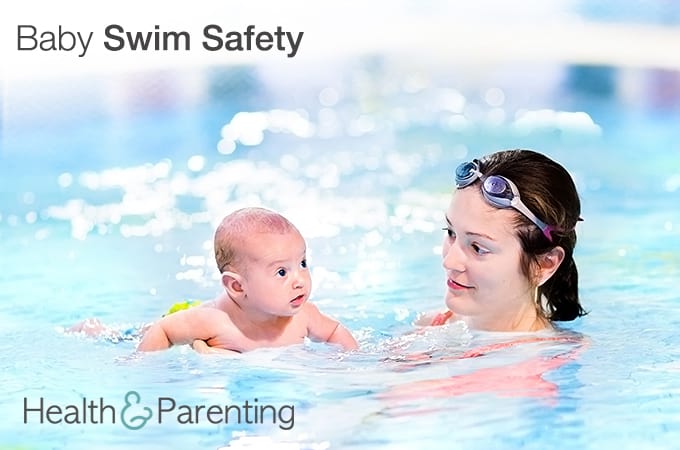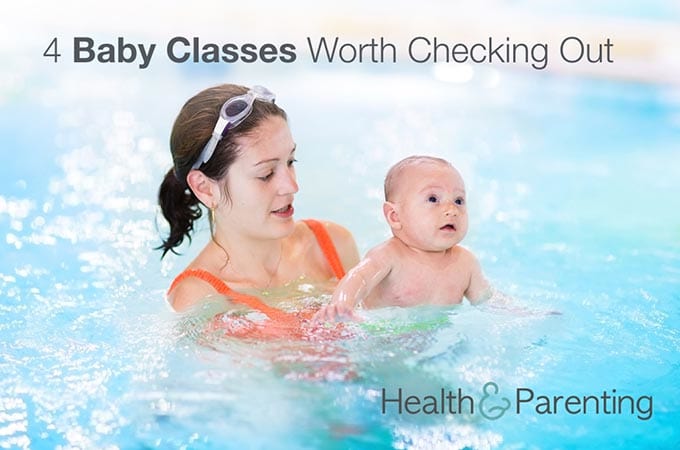You’ve heard all the warnings and you know that kids can drown in as little as one inch of water. That means an unlocked toilet seat, a forgotten bucket, and the bathtub can all pose a risk if you’re not watching. Given that, it’s fair to be extra-concerned about swim safety.
As your child becomes more mobile, watching him or her around water should be an even bigger priority. If you have a backyard swimming pool, be sure it is fenced in and inaccessible to your little one whenever you’re not around.
But having that backyard swimming pool (or even just enjoying swimming as a pastime) means that you will surely have your baby in a suit and in the water at some point. So how can you ensure their safety when that happens?
Well, obviously, maintaining a watchful eye is the most important thing. But beyond that, you may want to consider enrolling your child in baby swim lessons. At this point, they won’t actually be learning how to swim, but they will be learning to be comfortable in the water. Some lessons will also teach various survival techniques, like how to find and hold onto the pool’s edge. You might find that you learn a few tips and tricks for keeping your little one safe while at those lessons as well. And if done right, they should prove to be a fun parent/child bonding activity that you both enjoy.
Outside of lessons, anytime you’re near open bodies of water (the ocean, a lake, the creek that runs just behind your house) your little one should have a lifejacket or floaties on. These natural bodies of water can be swift and unpredictable, and you want to make sure that your baby is protected if a rogue wave appears or if they accidentally fall into the fast-moving current of that creek. You should also always be within arms reach for a quick rescue, should they fall in.
When it comes to your backyard pool, now is the time to begin laying the ground rules. No running around the deck and no swimming without an adult around are good places to start. It might also be a good idea to become infant and child CPR certified yourself, so that you can respond quickly in case of an emergency.
Above all else, never leave your child unattended around water. Accidents can happen in the blink of an eye, and while no parent ever thinks it will happen to them, no family is completely protected from the possibility of accidental drowning.
Written by Leah Campbell, infertility advocate, adoptive mama, writer and editor. Find me @sifinalaska on Twitter.
This information is not intended to replace the advice of a trained medical doctor. Health & Parenting Ltd disclaims any liability for the decisions you make based on this information, which is provided to you on a general informational basis only and not as a substitute for personalized medical advice. All contents copyright Health & Parenting Ltd 2016. All rights reserved.











